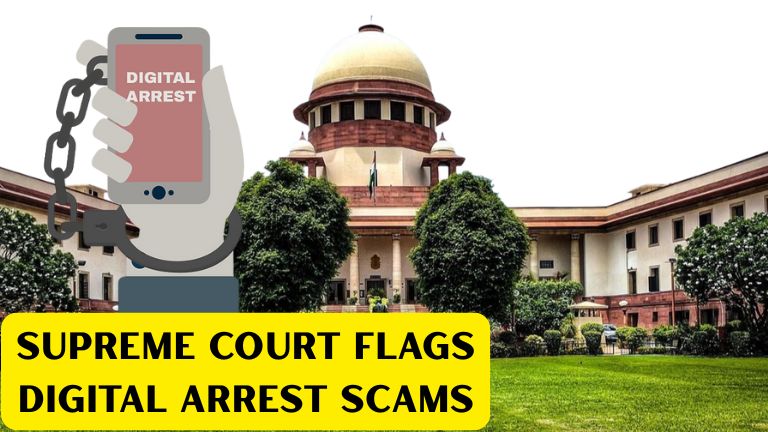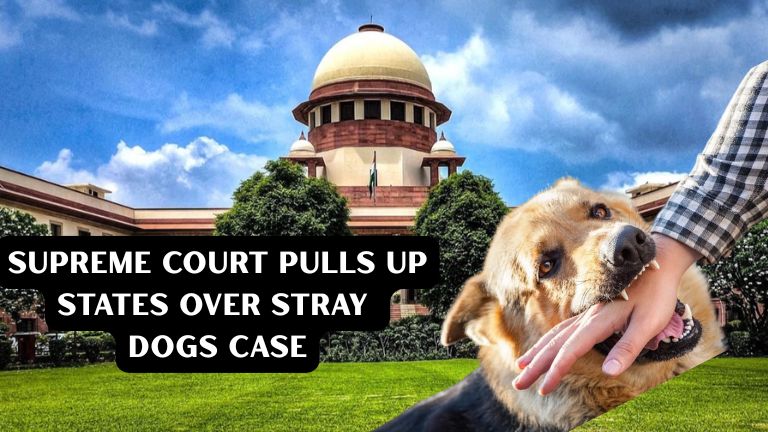S.S. Nijjar, J.@mdashThe petitioner joined the respondents-department as a Patwari on 4.11.1977. On 1.10.1980, his services were regularised.
He crossed the Efficiency Bar w.e.f. 1.11.1982. However, on 22.6.1988. he was placed under suspension on the basis of
pseudonymous/anonymous complaint. No explanation of the petitioner was sought before placing him under suspension. He was kept under
suspension for more than four years i.e. from 22.6.88 to 10.1.1993. During all this period, no regular enquiry was initiated against the petitioner.
The petitioner approached respondent No.2 with a prayer for reinstatement. However, the claim of the petitioner was not considered by
respondent No.2 at all. Aggrieved against the unjustified victimisation of respondent No.2, the petitioner approached respondent No.1. After
making due enquiry, respondent No.1, Financial Commissioner (Revenue) Punjab found the complaint to be false and frivolous and directed the
reinstatement of the petitioner. This order was passed on 29.9.1992. He was ultimately reinstated in service on 30.12.1992. During all this period,
the petitioner had been paid the subsistence allowance only from 22.6.1998 to August, 1985. His lien was transferred from Tehsil Rampura Phool
to Tehsil Mansa. He was not given posting order in District Bhathinda and he was directed to approach Collector Mansa for getting the posting
order On 16.8.1993 petitioner was called for personal hearing by respondent No.3. He was informed that since he had not been allocated to
District Mansa, he should correspond with the District Collector, Bhathinda for posting order. Since the petitioner failed to get the posting order
inspite of the orders for reinstatement having been passed by the Financial Commissioner (Revenue), Punjab, he again approached respondent
No.1 on 27.9.1993 seeking a direction to the Collector, Bhatinda, respondent No.2 to give him the posting order. It was only on 18.1.1995 that
the requisite directions were given by respondent No.1 to respondent No.2 to give the posting order to the petitioner. Inspite of the direction for
reinstatement on 29.9.1992, the petitioner was. not given posting order till 16.08.1995 when he was posted as Assistant Officer Kanungo in Tehsil
Phool, District Bhatinda. No orders were passed as to how the period of suspension from 22.6.1988 to 10.1.1993 was to be treated. The
provision of Rule 7.3B of the Punjab Civil Services Rules Volume-I Part-I was, therefore, not compiled with. During the period of the suspension
of the petitioner, persons junior to him had also been promoted. He, therefore, made a representation seeking the relief of promotion on 2.9.1996.
This representation was accepted by the Commissioner on 3.4.997. It was ordered that the petitioner be granted his original seniority w.e.f.
1.10.1980. It was noticed that the name of the petitioner figures at Sr. No.5 of the Seniority List and officials standing on subsequent numbers
have since been promoted. It was directed that since Patwaris junior to the petitioner have been promoted, he should be promoted from the date
the juniors were promoted subject to the outcome of CWP No.4591 of 1996. This order was also not implemented by respondent No.2. In the
final seniority list of Patwaris working in District Bhatinda, the name of the petitioner figured at Sr. No.5 while those of his juniors who had been
promoted figured at Sr. Nos.8, 11 and 13. These juniors were promoted as Kanungos on 28.6.1995 and 11.9.1997. Aggrieved against the
continuous harassment, the petitioner filed CWP No.17818 of 1997. The writ petition was decided on 4.5.1998 by this Court with the following
observations:
We are of the view that even if that is so, there is no bar to the respondents to comply with the order of the Commissioner dated 3.4.1997. Copy
Annexure P-14, so far as it promotes the petitioner to the rank of Kanungo. The petitioner is entitled to be given the charge of the post of Kanungo
which would be subject to the respondent deciding the case of the petitioner as to how the suspension period from 22.6.1988 to 10.1.1993 has to
be treated and what payment is to be made for that period and further the case regarding the alleged absence from 11.1.1993 to 16.8.1995. Let
the charge of the post of Kanungo be given to the petitioner immediately and the case regarding the suspension and the alleged absence as
aforesaid be decided by the respondents in accordance with law within four months.
2. Even after the orders passed by this Court, the petitioner was only appointed as a Kanungo in his own pay scale. The petitioner was, therefore,
constrained to file review of the order dated 29.5.1998. The review was partly allowed and it was held that the petitioner was entitled to get the
pay scale of the Kanungo. In the meantime, respondent No.2 had directed the Sub Divisional Magistrate, Rampura Phool to hold an enquiry
regarding the period of suspension and also the alleged absence from duty w.e.f. 11.1.1993 to 16.8.1995 and from 21.12.95 to 20.1.1997. Even
in this enquiry, the petitioner was exonerated. The Enquiry Officer observed as follows:-
I have reached this conclusion that the charge of absence from duty against the petitioner is not proved.
3. On 24.11.1998 the report of the Enquiry Officer-was accepted. The charge-sheet served on the petitioner was filed. It was further directed that
the period from 10.1.1993 to 16.8.1995 and from 21.12.1995 to 20.1.1997 be treated as leave of the kind due. The petitioner again had to seek
review of the order passed by respondent No.2 dated 24.11.1998. He prayed that a decision be given as to how the period of suspension from
22.6.88 to 10.1.1993 is to be treated. By order dated 13.1,1999, respondent No.2 decided that the petitioner was entitled to arrears of pay from
22.6.88 to 30.8.89. This was the period for which the petitioner had already received the subsistence allowance. He was deprived of the entire
monetary benefits for the remaining period.
4. After narrating the aforesaid facts, Mr. Riar learned Senior Counsel has submitted that the petitioner has been subjected to undue victimisation.
It is submitted that the petitioner is entitled to all the monetary benefits since he has been completely exonerated. No meaningful explanation has
been given in the reply filed by the respondents.
5. We have considered the submissions made by the learned counsel for the parties anxiously and perused the paper book.
6. A bare perusal of the facts narrated above would clearly show that the petitioner has been victimised by respondents No.2 and 3. At best the
action of respondent No.2 can be described as unfair. In reality, it seems that respondent No.2 has acted wholly arbitrarily and in utter-disregard
of the principles of fairness which conduct is not expected from Government Officers of the rank of Collector/Deputy Commissioner. In-spite of
the categoric orders having been passed by the Head of the Department i.e. the Financial Commissioner (Revenue). Punjab directing reinstatement
of the petitioner on 29.9.1992, he was not given posting order till 16.8.1995. Even this order was passed on the basis of a subsequent order
passed by the Financial Commissioner on 18.1.1995 reminding respondent No.2 that he had been directed to reinstate the petitioner in the earlier
order dated 29.9.1992. We are of the considered opinion that the whole action of the respondents is unreasonable and arbitrary. The anonymous
complaint on the basis of which the petitioner was ordered to be suspended was found to be frivolous and baseless. Therefore, there is no
justification in withholding full salary of the petitioner during the period of suspension. Under Rule 7.3-B of the Punjab Civil Services Rules Volume
I Part I, the respondents were required to take a decision as to how the period of suspension was to be treated. The relevant rule is as follows:-
7-3B (1) When a Government employee who has been suspended is reinstated or would have been so reinstated but for his retirement on
superannuation while under suspension, the authority competent to order
a) Regarding the pay and allowance to be paid to the Government employee for the period of suspension ending with reinstatement or the date of
his retirement on superannuation, as the case may be, and
b) Whether or not the said period shall be treated as a period spent on duty.
(2) XXX XXX XXX XXX
(3) Where the authority competent to order reinstatement is of opinion that the suspension was wholly unjustified, the Government employee shall,
subject to the provisions of Sub Rule (8), be paid the full pay and allowances to which he would have been entitled, had he not been suspended:
Provided that where such authority is of opinion that the termination of the proceedings instituted against the government employee, had been
delayed due to reasons directly attributable to the government employee, it may, after giving him an opportunity to make his representation and
after considering the representation, if any submitted by him, direct, for reasons to be recorded in writing, that the government employee shall be
paid for the period of such delay only such amount (not being the whole) of such pay and allowances as it may determine.
(4) In a case falling under sub-para (3), the period of suspension shall be treated as a period spent on duty for all purposes.
7. A perusal of the aforesaid Rule shows that the petitioner was entitled to be paid full pay and allowances. A false and fabricated complaint had
been made against him. On enquiry by the Head of Department, it was found to be false and fabricated. The petitioner was directed to be
reinstated. No adverse comment was made against the petitioner. The petitioner was in no way responsible for any delay in the decision taken by
respondent No. 1 for filing the complaint. Therefore, the case of the petitioner is squarely covered under Rule 7.3B(1)(3). By virtue of Sub rule (4)
it was incumbent on the respondents to order that the period of suspension shall be treated as period spent on duty for all purposes.
8. With regard to the period of the, alleged absence from 11.1.1993 to 16.8.1995 and from 21.12.1995 to 20.1.1997. the petitioner is also
entitled to the entire salary. The petitioner was sent from pillar to post looking for posting orders. Therefore, he cannot be deprived of the salary
which he would have otherwise earned. This apart, the Enquiry Officer has given a finding that the charge of absence against the petitioner is not
proved. Therefore, the petitioner is entitled to the salary for the aforesaid period. Similarly, the petitioner is entitled to all the consequential benefits
after being given the promotion from 28.6.1995 when persons junior to him were promoted as Kanungos. Non-consideration of the case of the
petitioner when persons junior to him were promoted, is violative of Articles 14 and 16 of the Constitution of India.
9. In view of the aforesaid discussion, the writ petition is allowed. The respondents are directed to treat the period of suspension from 22.6.1988
to 10.1.1993 as period spent on duty. The petitioner is held entitled to full pay and allowances for the aforesaid period. The petitioner is held
entitled to arrears of salary from 22.6.1988 to 30.8.1989. The petitioner is also entitled to full pay and allowances for the period from 11.1.1993
to 16.8.1995 and 21.12.1995 to 20.1.1997. The respondents are directed to calculate the amounts due to the petitioner on the basis of the
aforesaid directions within a period of two months from the receipt of a certified copy of this order. The amount shall be paid to the petitioner with
12 per cent interest from the date the amounts became due to the date of payment. No costs.
Sd/- Hemant Gupta, J.

